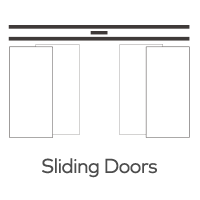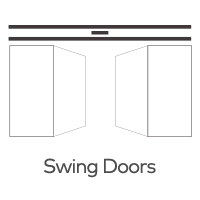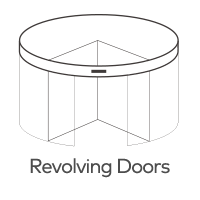How do automatic door sensors affect energy efficiency?
Automatic door sensors are becoming increasingly common in buildings and public spaces, as they provide a convenient and efficient way to manage foot traffic. They work by detecting the presence of a person and triggering the opening and closing of the door. While automatic door sensors can offer significant benefits in terms of convenience and accessibility, they can also have a significant impact on energy efficiency.

automatic door sensors affect energy efficiency is through the amount of air that is exchanged between the interior and exterior of the building. When doors are manually opened and closed, people tend to be more conscious of the amount of time that the door is open, and will often close it as soon as they pass through. With automatic doors, however, there is a risk that the door will remain open for longer periods of time, particularly if the sensor is not correctly calibrated or is too sensitive.
This can lead to a significant increase in energy consumption, particularly in buildings that are climate-controlled. The more that the door is left open, the more hot or cold air is allowed to enter or escape the building. This means that the heating or cooling system will have to work harder to maintain a consistent temperature, which in turn will lead to higher energy bills and increased greenhouse gas emissions.
Another way that automatic door sensors can affect energy efficiency is through the power consumption of the sensor itself. While automatic door sensors are generally designed to consume as little energy as possible, they still require power to operate. This means that buildings with a large number of automatic doors may see a significant increase in their overall energy consumption.
One way to mitigate the impact of automatic door sensors on energy efficiency is to ensure that they are properly calibrated and adjusted. This can help to minimize the amount of time that the door is open, and ensure that the sensor is not unnecessarily triggering the door to open when it is not needed.
Another option is to install automatic doors that are specifically designed to be energy efficient. These doors may feature advanced sensors that are able to accurately detect the presence of a person without opening the door unnecessarily, or they may be designed to minimize the amount of air exchange that occurs when the door is open.
In conclusion, while automatic door sensors can offer significant benefits in terms of convenience and accessibility, they can also have a significant impact on energy efficiency. By properly calibrating and adjusting the sensors, and by choosing energy-efficient automatic doors, building owners and managers can help to minimize the impact of automatic door sensors on energy consumption and reduce their overall environmental footprint.







